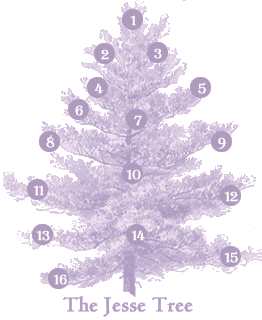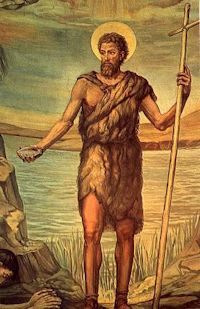Saint Thomas Villanova OSA, Annunciation, sermon 3,2-3 from Lectern other translation. A Word in Season,Agustinian, 2001.
One little aside is moving; Gabriel says,“Hail , full of Grace, the Lord is with you, far more than with me".
OFFICE OF READINGS
SECOND READING
From a sermon by St. Thomas of Villanova: Opera Omnia Vol.5, PP 346-349.
You shall give God a robe of flesh.
All the praises of the Virgin Mary may
be summed up by saying that she is the Mother of God. For, what grace
could be suitable for the Mother of God? What favor would God be unable
to bestow on her? What blessing could her Son not but will for her?
When the time was ripe to reveal the
mystery that had (as the Apostle says) been hidden through the ages and
was now to be shown forth in the final age, God summoned Gabriel. “Go”,
he tells him, “to the Virgin Mary, carry the message beyond all
messages: God will become man in her.”
He enters [her room] and does homage on
his knees. “Hail , full of Grace, the Lord is with you, “ far more than
with me. Virgin, do you see and hear this great soldier of heaven? How
he does homage to you? How he greets you? What then are your thoughts?
Tell us: What. is your reply to him? What thoughts run through your
mind? He greets you: greet him in return?
What blush colors your virginal cheek?
What rosy hue? Why are you disturbed? ‘Why hesitant and afraid? This is
an angel, not a man! He is from heaven, not from earth; he greets you
humbly and does not seek to’ over. whelm you; he carries no sword! Why
then, are you disturbed? Why frightened? His greetings bring joy, not
fear!
See how prudent the Virgin is: “She
pondered what this greeting might mean.” Virgin, why do you reflect
before answering? This, after all, is an angel, not a serpent. Eve
answered without thinking; the virgin ponders. Eve was quick to consent;
Mar) reflects on what her answer should be. How different this
blessed woman from that first woman of our race! See, the angel speaks
at length; he has now said all he wanted; he has fully carried out his
embassy - but the virgin has not yet spoken. How reserved she is! Learn
from her all virgins, not to be too talkative. “How shall this take
place since: do not know any man? I do not doubt the mystery; I only ask
how will it be accomplished.
O virgin, how many virgins surrender the
virginity to bear a child, and yet it is but a mortal man they bring to
birth you have heard that you will give birth to God - and yet you
hesitate! “How shall this take place”, angel of God? However it takes
place, you will be the Mother of God. I could tell you virgin, of a way
prefigured in the law. You know the scriptures; you surely know, after
all that a virgin was to give him birth. Are not the law and the
prophets, then, to be fulfilled?
Recall: the bush burned but was not
consumed the flames roared through it but it remained intact. So you
shall be robed with the sun, yet your virginity will not be lessened.
You shall give him a robe with a body and be yourself robed by God. You
shall set the crown of mortality upon him; he shall crown you with a
diadem of glory. You are a virgin, yet fruitful; you shall be a mother,
yet unsullied, and have the joys of motherhood no less than the virgin’s
high estate.
http://friarydiaries.tumblr.com/post/22650841541/may-8-two-augustinian-feasts
RESPONSORY
Receive, O Blessed Virgin Mary, the word the
Lord has made known to you through the message of the Angel: you will
conceive and give birth to a son, both God and man.
- and you will be called blessed among women.
A Virgin, you will indeed bear a son; ever chaste and holy you will be the mother of our Savior.
- and you will be called blessed among women.
DIARY OF AN ACCIDENTAL HERMIT: DAY #7 - SAINT THOMAS OF VILLANOVA
diaryofanaccidentalhermit.blogspot.com - 717 × 538 - Search by image
is
a man after my own heart. I would like to introduce him to the many
people who even now in America are obsessed with recounting the supposed
sins of the poor.






 Church Fathers
Church Fathers 





